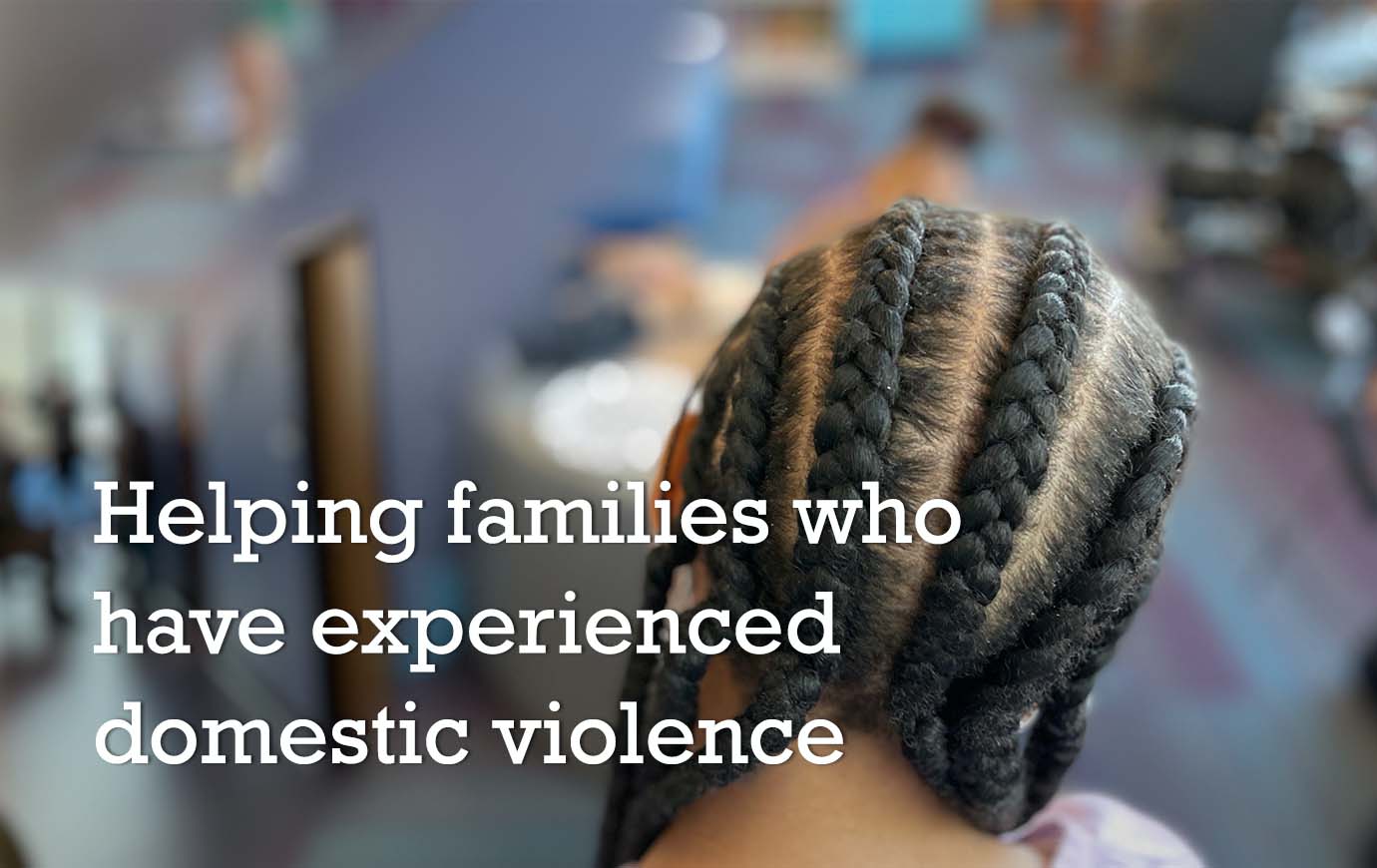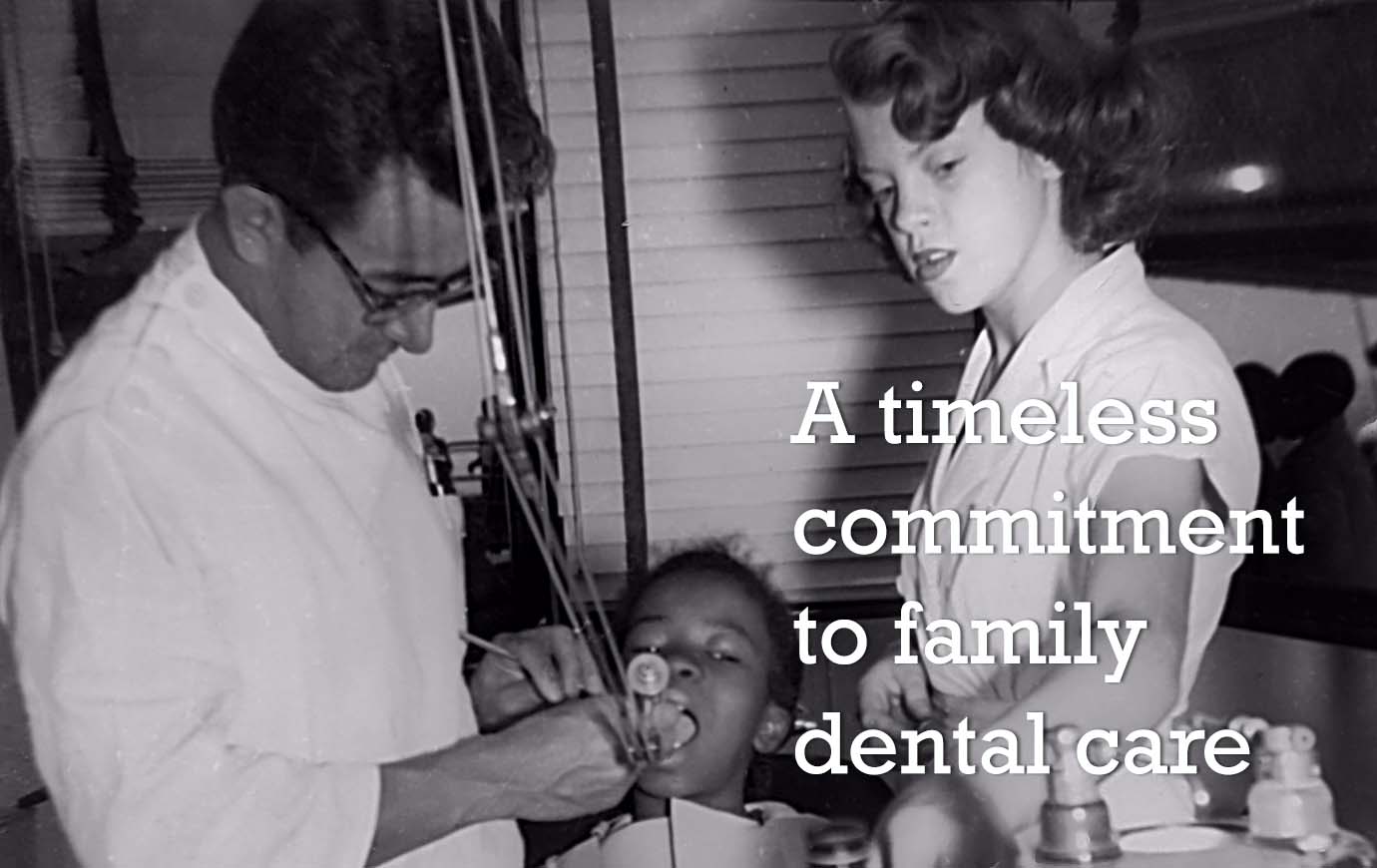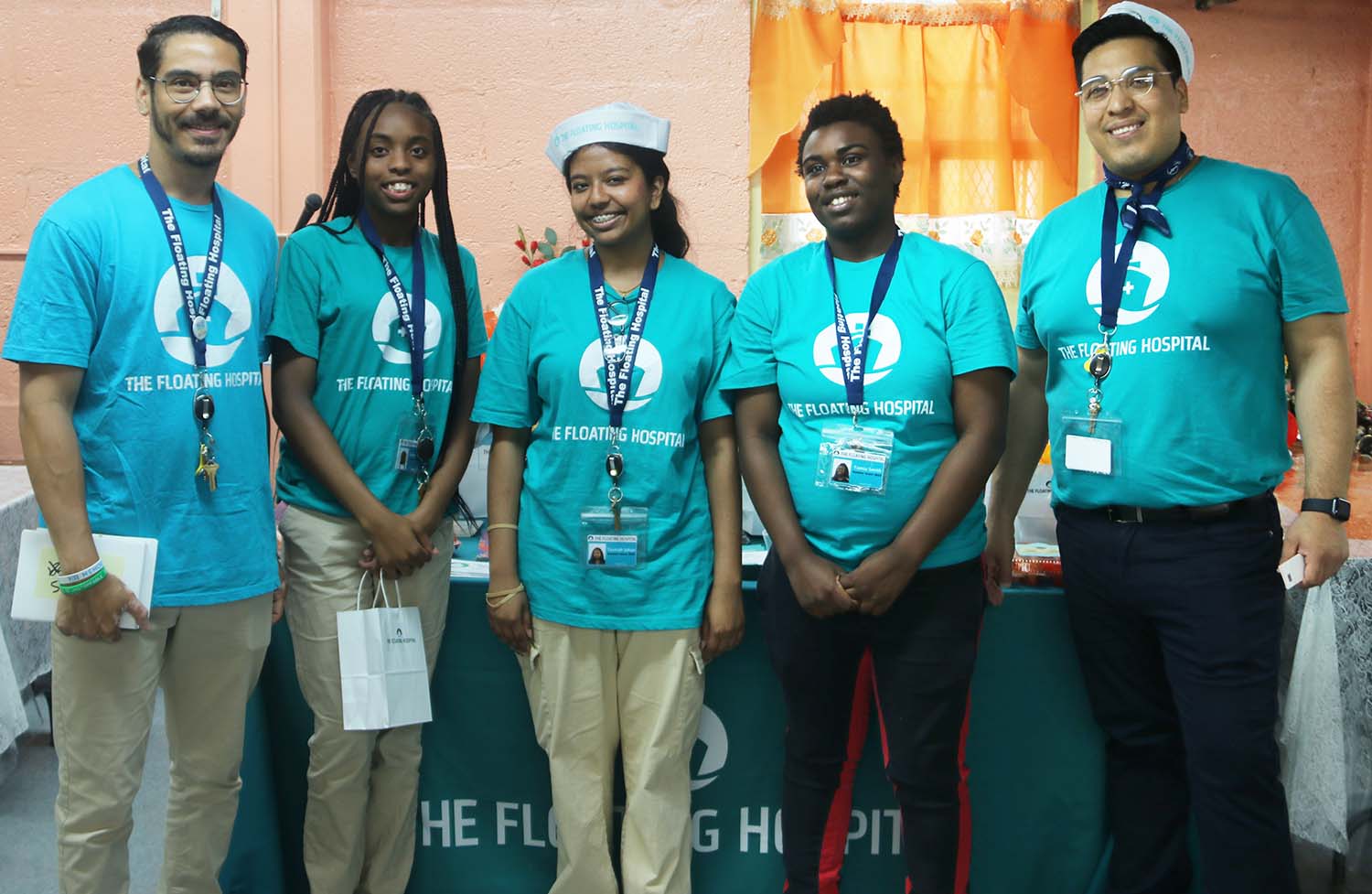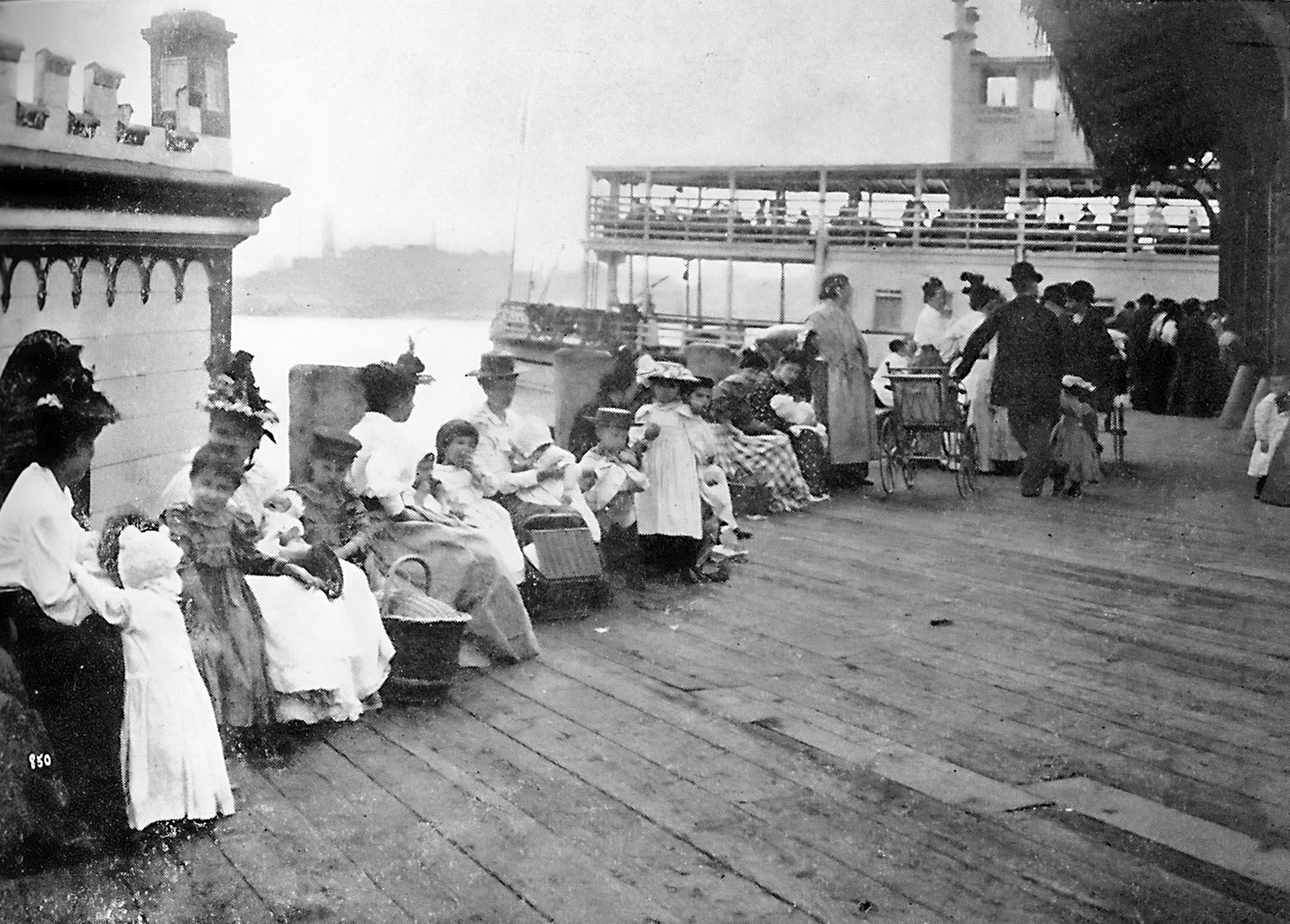| |  | | |  | The Floating Hospital already serves survivors, but aims to do more for those in need in 2024 Supporters and friends of The Floating Hospital know that we provide healthcare and support to families living in New York City homeless shelters, but many don’t know we also serve the city’s domestic violence safe houses. As with the city-operated shelters, that outreach is performed under our Families in Temporary Housing department. Families in Temporary Housing director Iván Romero says some 56 safe houses are operated under the city’s Human Resources Administration (others may be separately run by religious or other private groups), and we have reached out to all of them. Domestic violence is a major driver of homelessness for women and children. Nationally, 22 to 57% of all women experiencing homelessness report that domestic violence was the immediate cause, according to the Washington, D.C.-based National Network to End Domestic Violence. Last year, the National Alliance to End Homelessness, also based in Washington, D.C., reported that approximately 11% of all emergency shelter, transitional housing and safe-haven beds in homeless service systems were targeted to survivors of domestic violence and their families. | | | | | | | | | |  | When The Floating Hospital moved into its new clinic in Long Island City in 2021, it was an opportunity to expand our dental offerings. Once a pair of dental chairs set up in a small space on the ship, today, our dental practice encompasses seven chairs and a staff of ten, offering broad access to premium oral care and preventative education. Ernesto Hart, the department’s manager, recalls joining The Floating Hospital in 1991 after a faculty member at New York University’s dental assistant program introduced him to the opportunity. “That summer position set the course for my life's work,” he says. Now, after more than three decades of service, he is helping set a new course for quality dental care for New York City families who need but cannot afford it. | | | | | | | | | |  | | | 2023 intern program ends on a celebratory note For the past 15 years, our six-week intern program has brought youthful energy and fresh perspectives to our work. This year’s enthusiastic interns came exclusively from the Summer Youth Employment Program (SYEP), a New York City program that connects young people aged 14 to 24 with paid summer work experiences that can open doors to career opportunities. Floating Hospital interns assisted staff with tasks such as shadowing patient navigators and providers in the clinic to helping with outreach at community events—activities that develop critical skills in time management, communication, administration, teamwork and leadership. This summer, we offered lessons in conversational Spanish so that interns could assist the recent high volume of Spanish-speaking migrants seeking our services. Last month, interns accompanied our community outreach team at the Consulate General of Mexico, helping inform more than 100 newcomers to the United States on the importance of regular medical care and signing them up for appointments at The Floating Hospital. Earlier in the season, they engaged with Ravenswood Residence Association members and the New York Police Department at Ravenswood Family Day, a family community-building block party to help build neighborhood vigilance. They also participated in a pilot program community outreach director Cynthia Davis launched this year to strengthen connections at local senior centers. Interns kept company with Ravenswood residents, playing trivia games, reading books and dancing. On Aug. 10, our season of services and personal growth culminated at SYEP’s Youth Power Day, a resource fair for young adults. While we hope our program will guide them to a career in the healthcare field, our larger goal is putting them on a path to their future success and making a positive contribution to society. One intern said about her summer experience: “I felt a genuine sense of making a positive impact. Regardless of my future path, giving back will remain a core part of it.” | |  | Left to right: Janckfre Arevalo, Imani Keith, Tasniah Jahan, Tamia Smith and Luis Jimenez | | | | | | Give flu prevention your best shot Flu season will soon be upon us. Typically intensifying in winter, the flu virus begins its spread early in the fall. Receiving a flu vaccine each year helps ensure you're protected from the outset and helps safeguard others. When large numbers of people are inoculated each year, it significantly builds community herd immunity—a communal protection that is invaluable, especially for those unable to get vaccinated due to specific medical conditions. Children, individuals over 65, and those with chronic health conditions such as asthma and heart disease are especially vulnerable. The CDC strongly endorses the annual flu vaccine for everyone aged six months and older. To further fortify your defenses: -
Minimize contact with individuals diagnosed with the flu -
Adopt proper respiratory etiquette by covering your mouth and nose during coughs and sneezes -
Consistently wash your hands with soap and water -
Exercise caution to avoid touching your face -
Ensure frequent cleaning and disinfection of high-touch areas For detailed guidelines and recommendations, please refer to the CDC's official website. Flu vaccines will be available at The Floating Hospital in September. Call 718-784-2240 if you are interested in getting your vaccine at our clinic. Be well! | | | | Pickleball for health equity On July 28, the first “Women in Healthcare Give Back” pickleball tournament was organized by the NY Tri-state chapter of the Healthcare Businesswomen’s Association (HBA), a global organization committed to gender parity and equity in the healthcare industry. Held in Chatham, N.J., and spearheaded by HBA members Beth Bauer, Raca Banarjee and Charlene Prounis (who also sits on The Floating Hospital’s foundation board), the event provided a fun framework for more than 30 members to learn more about our commitment to health equity for New York families. A raffle followed, where HBA members donated essential items for the 80 young people attending Camp Rise Up this year. The tourney was the second HBA-TFH event partnership: HBA volunteers were on the ground at our spring Women’s Wellness Day, showering patients with attention and good cheer, and helping us demonstrate our “more than healthcare” delivery of care. We are thrilled to welcome HBA members to Camp Rise up in Rhinebeck, N.Y., this month, where they will help organize the campus for a week of learning, growth and recreation, and greet happy campers as they arrive. | |  | | | | | | | | |  | From barge to beacon: the origin of The Floating Hospital’s name in 19th century New York The latter half of the 19th century was marked by a wave of modern philanthropy—a focus on socio-centric voluntary efforts to extend aid to people experiencing poverty. And as one example of this noble display of benevolence, the New York Times made an appeal on July 3, 1872, calling to provide impoverished children with a privilege experienced by their affluent counterparts: summer day trips away from the city. The plea, made to improve health and wellbeing, was met with overwhelming monetary support from the wealthy public. These funds allowed the publication to organize several seafaring excursions—providing children with salty fresh air, entertainment, and refreshments—and a relief program to keep the outings going. The venture expanded across the city and grew to involve several voluntary organizations, including St. John’s Guild. While the Guild participated in the Times’ efforts, it also began to organize its own sea outings and relief program. In 1873, it hired a barge and ran two excursions, partially financed by the Times’ fund but more heavily supported by abundant direct donations. The following year, the Guild sponsored 18 more excursions that offered children and their guardians clean air, food, clothing, hygienic education, and one unique provision: medical care from physicians. By 1875, 17 physicians volunteered their services to the Guild, and it is said the barge they operated on was called the Floating Hospital. Feeling inspired, the Guild commissioned a ship—its own “Floating Hospital”—that accommodated 2,500 sick children and mothers and opened for sail in July 1875. —CHRISTINA PERRIER | | | | | | Donate to help make healthcare for all New Yorkers a reality | | | | | | | | | |  | Thank you from all of us at
The Floating Hospital | | Grand Central Station, P.O. Box 3391,
New York, New York 10163
718-784-2240
info@thefloatinghospital.org | | | | | | | | | |